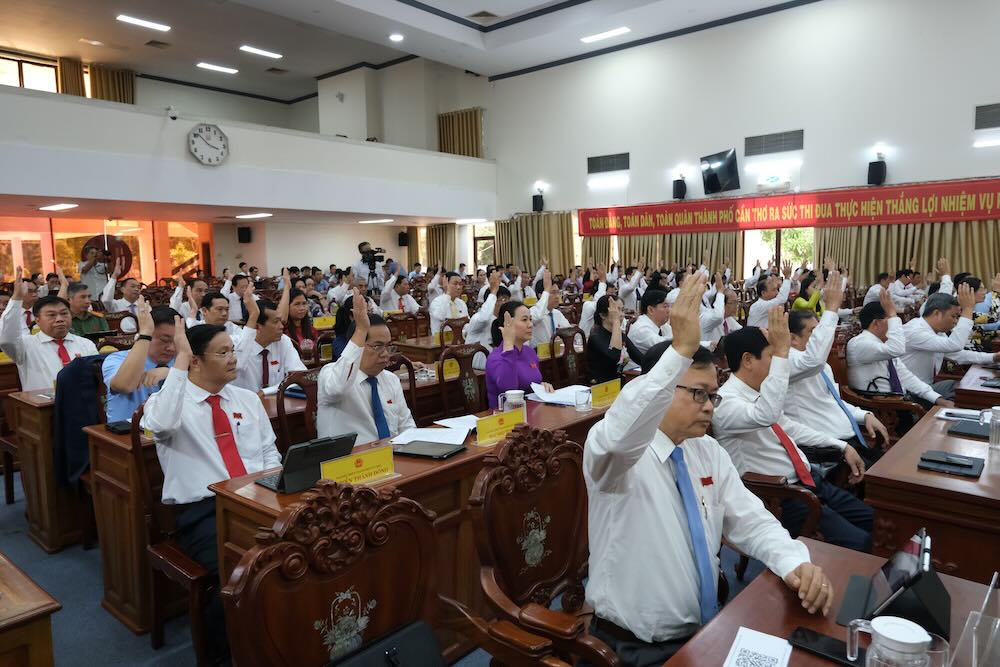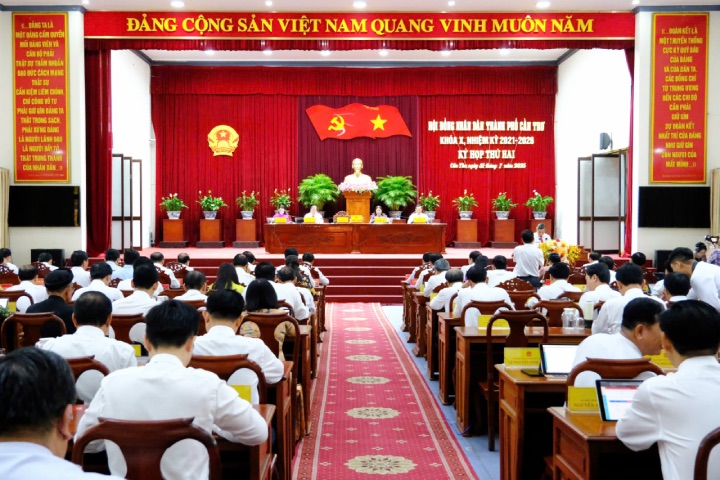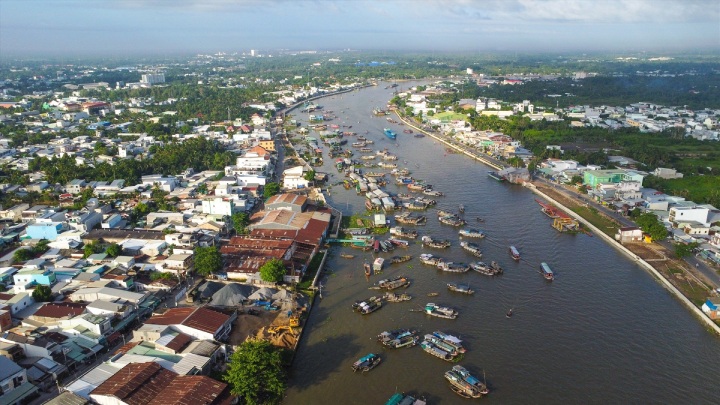On the afternoon of July 31, at the second session of the Can Tho City People's Council, Term X, term 2021 - 2026, the People's Council delegates voted to approve the Resolution on the allocation of the 2025 budget estimate of Can Tho City.
Accordingly, the total state budget revenue estimate in the area in 2025 is VND 26,793,637 million, including domestic revenue of VND 25,412,000 million, import-export revenue of VND 1,380,000 million, and aid revenue of VND 1,637 million. The total estimated budget revenue of the city in 2025 according to decentralization is VND 23,777,606 million.
The total estimated local budget expenditure in 2025 is 53,805,446 million VND.

Previously, according to the report (July 29) of the People's Committee of Can Tho City on the implementation of the budget for the first 6 months of the year and the direction of tasks for the last 6 months of the year sent to the Second Session of the People's Council of Can Tho City, the total state budget revenue (NSNN) according to the assigned target in the first 6 months of 2025 was 13,790,821 million VND, reaching 55.71% of the central budget estimate and 51.47% of the City People's Council assigned.
According to the assessment, the reason for the revenue in the first 6 months of the year ensuring the set progress is due to the characteristics of Can Tho area; imported goods mainly in the form of processing, export production, imported goods of exporting enterprises, goods subject to tax exemption, not subject to tax; imported machinery and equipment to create fixed assets of investment projects are no longer available and there is no possibility that new projects will not arise by the end of the year.

However, the implementation of socio-economic development tasks in 2025 is still facing many difficulties and challenges. Notably, the tax debt ratio in the area is still high, exceeding the prescribed threshold, and more drastic solutions are needed in the coming time.
For budget expenditures and regular expenditures, the basic budget management work must meet the assigned estimates in a timely and complete manner; ensure funding for units and localities to pay salaries, salary-based items and social security policies.
Regarding development investment expenditure, the disbursement rate of basic construction investment capital is still low compared to the requirements. The main reason is that compensation and site clearance for construction projects are still slow, facing many difficulties and obstacles.

According to this report, in the last 6 months of 2025, the state budget collection work is forecast to continue to face many difficulties and challenges due to the impact of tax exemption and reduction policies issued after the estimate is assigned, leading to a possibility of a revenue shortfall of over 6% compared to the annual plan.
In that situation, Can Tho continues to synchronously and drastically implement tax management solutions; strengthen inspection, examination, handling of violations, enforcement of tax debts to combat tax loss, tax evasion and compensation for state budget revenue losses due to the implementation of the exemption policy.











